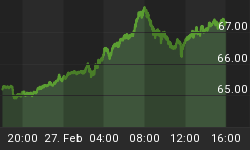Cyprus, for now, has seen disaster averted. In a flurry of weekend maneuvers, Cypriot and troika officials decided on a plan to merge the top two banks, fully protecting the insured depositors while socking the uninsured depositors of those two banks and the non-government financial stakeholders. In short: depositors at the largest bank will lose ~40% of their deposits above the guaranteed threshold, depositors at the second-largest bank will lose ~100% of their deposits above the threshold, bondholders (both senior and subordinated) at the second-largest bank will be wiped out and bondholders (including senior bondholders) at the largest bank will be wiped out. Equity holders in both banks will be fully wiped out.
That's not completely accurate, because there are various classes of government (Cyprus) and supranational stakeholders (e.g. the ECB) who it appears will be spared, but the rest will be fully "bailed in."
Yes, let's take a minute to examine this addition to the lexicon. "Bailed in" is the opposite of "bailed out." We already had a term for that; we used to say that these people were "wiped out." But now, the idiocracy has decided that "bailed in" is a kinder and gentler way of saying that you've lost everything, but thanks for your contribution to the bailout." It's based on the law of conservation of bailing, I think, which states that for every bailout there is an equal and opposite bail-in.
Personally, I don't think it's a word and Microsoft Word doesn't think so either.
However, we should get used to the word because the head of the Eurogroup of Eurozone finance ministers said that the Cyprus solution is the "new template" for resolving future Eurozone banking problems. I would hope that somewhere here it would occur to these people that the "template" they arrived at after almost losing Cyprus was something like what a financial-sector analyst (say, three years out of school) would have come up with as the "first-pass after thinking about the problem for five minutes" solution. Unfortunately, the "after thinking about it for five more minutes" solution recognizes that this solution pushes assets into the too-big-to-fail banks, since no person (or corporation) in his right mind will hold more than the deposit insurance maximum at any given bank (even if that person believes that the idiocracy learned a lesson and won't grab insured deposits in the future), unless it's very unlikely that the bank would ever be allowed to fail in the first place.
To be sure, the Powers That Be are aware that this solution isn't perfect, since banks in Cyprus are to remain closed "until further notice." This is because the obvious side-effect to the implemented Plan B is that every uninsured deposit will flee the country's third, fourth, fifth, and sixth-largest banks the moment the wires open. This is the classic problem with bank runs. If you ring-fence a group of banks, the weakest bank outside of that circle immediately becomes the weakest overall bank and the run commences there. Thus, unless you protect all of the banks, the run will continue until there are no more uninsured but vulnerable deposits.
Now, if the original Plan A hadn't called for the "bailing in" of depositors even at more-stable banks, then the bank run may not have happened since "vulnerable" then would be taken to mean "deposits at a weak institution." But now, depositors in Cyprus are on notice that "vulnerable" means "deposits in a country that has weak banks, whether or not that includes this one." Indeed, I would expect many "insured" deposits to leave the banking system for mattresses and other alternative savings vehicles, now that we know that an "insured" deposit in Cyprus is just exactly as secure as the politicians' spines allow it to be. This time, the spines held (and three cheers for the Cypriot legislature who declared they'd secede before allowing their insured citizens to be mugged), but what about next time? In their place, I'd be taking out enough to live on for a few months, at least.
Incredibly, despite the fact that the stock market got exactly what it wanted, market gains evaporated within minutes of the opening bell as smart money sold to the folks who did what CNBC told them to do (it's okay...it's just that they're trying to bail you in. You want to help the institutions, right?). Commodities and bonds were flat, but there's always tomorrow. Ironically, today's weak market performance came on the heels of a couple of strong regional Fed reports from Dallas and Chicago, and ahead of what is likely to be decent Durable Goods (Consensus: +3.9%, +0.6% ex-transportation), New Home Sales (Consensus: 420k from 437k, but that would still be the 2nd highest non-tax-break number since 2008), and Consumer Confidence (Consensus: 67.5 from 69.6, but still closer to the highs than the lows of the last few years) data. Also out is the S&P Case Shiller index for January, which is expected to have risen 7.85% from year-ago levels.
All of which, and much more, is already in the price. Stocks only look good if your alternative is a bank account in Cyprus.
You can follow me @inflation_guy!
Enduring Investments is a registered investment adviser that specializes in solving inflation-related problems. Fill out the contact form at http://www.EnduringInvestments.com/contact and we will send you our latest Quarterly Inflation Outlook. And if you make sure to put your physical mailing address in the "comment" section of the contact form, we will also send you a copy of Michael Ashton's book "Maestro, My Ass!"















